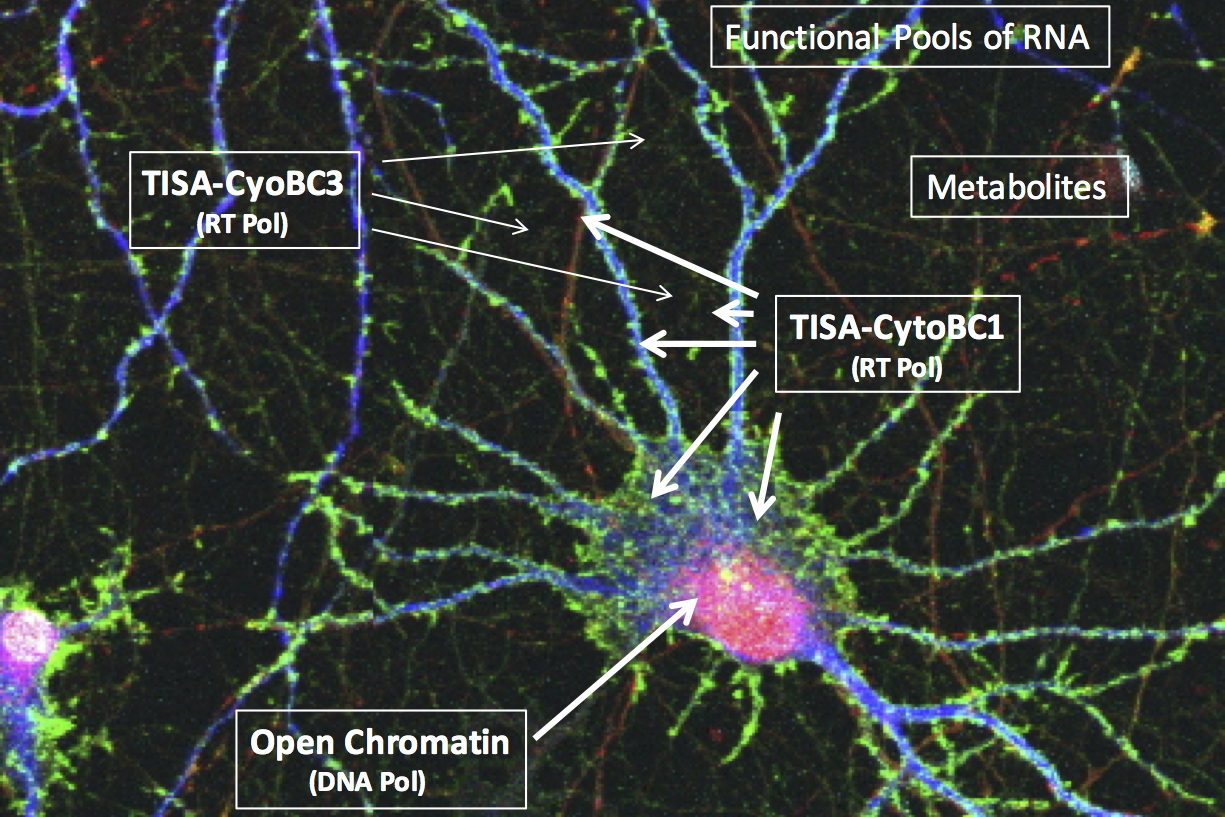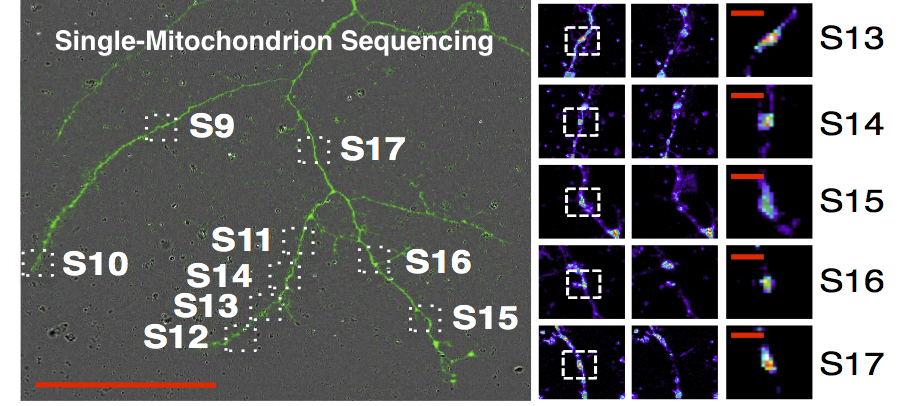


A cell is a highly complex system with distributed molecular physiologies in structured sub-cellular compartments whose interplay with the nuclear genome determine the functional characteristics of the cell. A classic example of distributed genomic processes is found in neurons. Learning and memory requires modulation of individual synapses through RNA localization, localized translation, and localized metabolites such as those from dendritic mitochondria. Dendrites of neurons integrate distributed synaptic signals into both electrical and nuclear transcriptional response. Dysfunction of these distributed genomic functions in neurons can result in a broad spectrum of neuropsychiatric diseases such as bipolar and depressive disorders, autism, among others.
The Center for Sub-Cellular Genomics’ (CSG) mission is to develop new technologies to enable the dissection of complex genomic interactions within a single cell. New technologies include methods to target DNA and RNA sampling at sub-cellular resolution in live cells; high-throughput isolation and microfluidics chemistry for sub-cellular fractions; sub-cellular resolution mass-spectrometry; and computational tools for analysis of sub-cellular genomics data.
The new technologies developed by CSG will enable the broader genomics community to associate sub-cellular processes to cell function and dysfunction. These technologies will be utilized in the center to generate a comprehensive atlas of genomic signatures of sub-cellular compartments in the mammalian neuron system. The technologies and neuron-focused data obtained here will be relevant to neurodegenerative and neuropsychiatric diseases including Schizophrenia, Depression, Autism Spectrum Disorder, Traumatic Brain Injury, and Alzheimer’s.
Announcing DAPPG
Apply now for the Diversity Action Plan for PENN Genomics (DAPPG) program, aimed to increase the number of UR students choosing a career in genome sciences and genomic medicine...